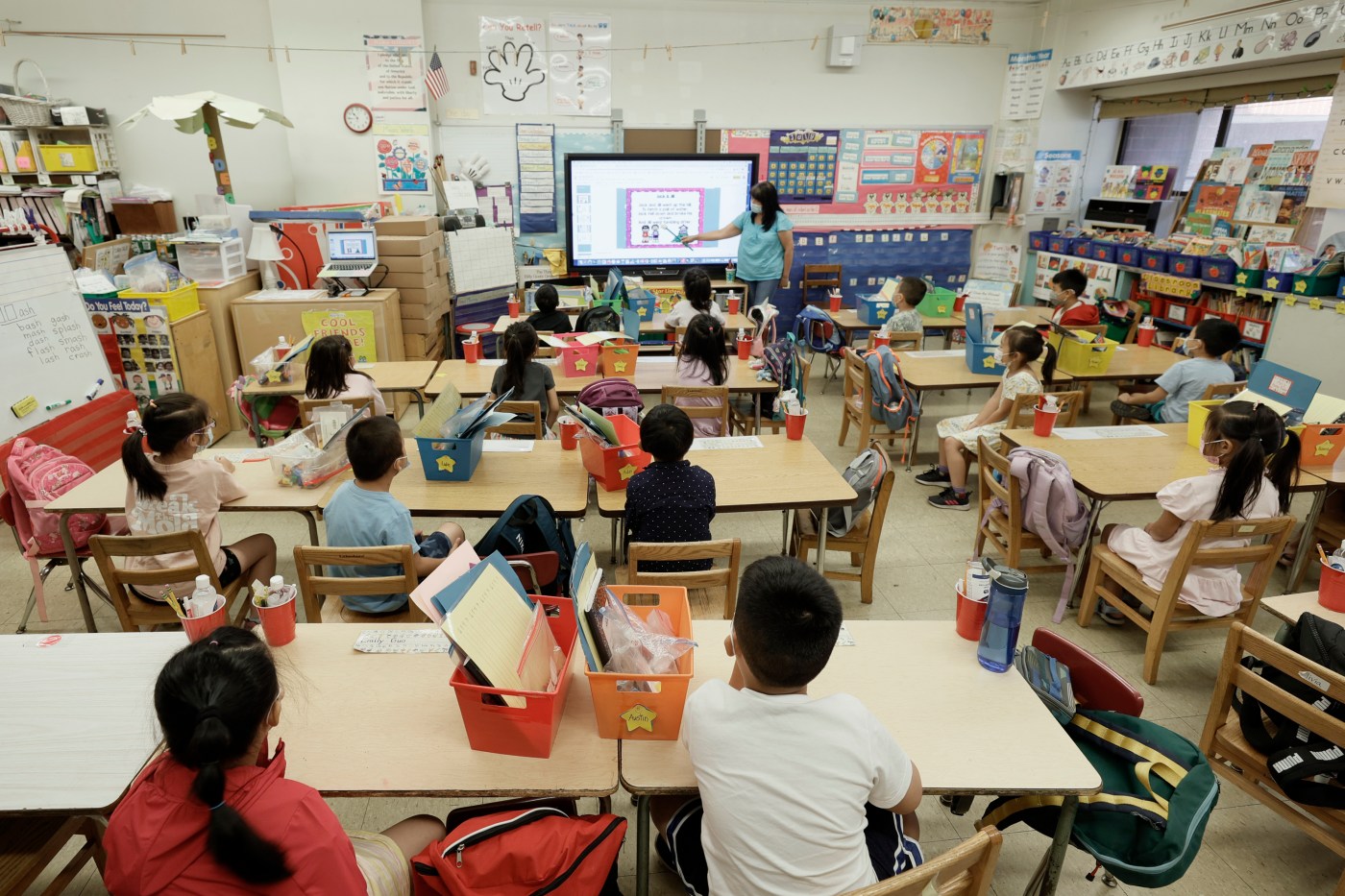Politics
NYC Mayoral Candidates Urged to Prioritize Education in Debate

New York City’s upcoming mayoral debate is set to spotlight a critical issue that has received insufficient attention in recent campaign discussions: education. As candidates prepare for their first general election debate this evening, observers emphasize that education is fundamental to the quality of life for nearly a million students in the city. The decisions the next mayor makes about education will significantly influence the future workforce and the overall well-being of New York City.
New York is currently experiencing a changing economic landscape characterized by slow job growth and the increasing integration of artificial intelligence across various sectors. According to the city’s Office of Management and Budget, the first seven months of 2023 have seen the slowest positive job growth recorded since 1995. This shift intensifies the need for a robust education system capable of preparing students for a workforce that is evolving rapidly.
The implications of these economic changes are particularly evident for recent graduates. The unemployment rate for college graduates stands at 5.3%, notably higher than the overall rate of 4%, as reported by the New York Federal Reserve. This stark contrast underscores the urgency for educational reforms that equip students with the skills necessary to navigate a competitive job market.
New York City’s public schools have long recognized the importance of aligning education with workforce needs. Initiatives that foster cross-sector partnerships have paved the way for career pathways that include work-based learning opportunities in high-demand industries. At Teachers College, Columbia University, students are gaining practical experience in pre-K to 12 classrooms, preparing them to become the next generation of educators and leaders.
Despite various policy proposals from mayoral candidates—ranging from enhanced early-childhood programs to vocational training and increased support for teachers—voters are seeking a cohesive vision for how these ideas will translate into tangible outcomes. Many schools continue to grapple with challenges such as pandemic-related learning loss and chronic absenteeism. Additionally, shortages of essential staff, including counselors, social workers, and bilingual educators, further hinder student support.
Candidates have differing views on school governance, with Andrew Cuomo advocating for the continuation of mayoral control, while Curtis Sliwa calls for new oversight and Zohran Mamdani proposes decentralizing authority. Ultimately, what matters most is not merely the structural approach to governance but the effectiveness of these strategies in delivering improved educational outcomes.
As New Yorkers engage with candidates, it is crucial to demand clarity on how each proposal will ensure that resources and reforms actually benefit classrooms. No governance model will succeed without a significant investment in the educators and staff who implement these initiatives daily.
The challenges facing educators today are considerable. Teachers are tasked with integrating AI into their instruction, addressing escalating mental health needs among students, and managing multilingual classrooms, all while facing shortages in essential support personnel. While candidates have acknowledged the importance of educators, a comprehensive vision for recruiting, preparing, and retaining high-quality teachers remains absent from the discourse.
The discussions surrounding the economy, school governance, and educator support are interconnected. Education is not merely a policy area; it is the foundation of public good and a critical factor in the city’s long-term success. The next mayor’s decisions regarding education will significantly affect economic competitiveness, neighborhood stability, and the preparedness of future generations.
As the debate unfolds, voters in New York City deserve clear answers to essential questions: How will classrooms connect to careers? How will schools secure the necessary resources? How will educators receive support? Addressing these inquiries is not just a matter of political rhetoric; it is a test of leadership. Education serves as a bridge between opportunity and progress, and its centrality in the mayoral race is vital for fostering a city where every child has the chance to learn, grow, and thrive.
-

 Science2 months ago
Science2 months agoUniversity of Hawaiʻi Joins $25.6M AI Project to Monitor Disasters
-

 Business2 months ago
Business2 months agoForeign Inflows into Japan Stocks Surge to ¥1.34 Trillion
-

 Top Stories2 months ago
Top Stories2 months agoBOYNEXTDOOR’s Jaehyun Faces Backlash Amid BTS-TWICE Controversy
-

 World2 months ago
World2 months agoBoeing’s Merger with McDonnell Douglas: A Strategic Move Explained
-

 Top Stories2 months ago
Top Stories2 months agoCarson Wentz Out for Season After Shoulder Surgery: Urgent Update
-

 Entertainment2 months ago
Entertainment2 months agoSydney Sweeney Embraces Body Positivity Amid Hollywood Challenges
-

 Top Stories2 months ago
Top Stories2 months agoMarc Buoniconti’s Legacy: 40 Years Later, Lives Transformed
-

 Lifestyle2 months ago
Lifestyle2 months agoKelsea Ballerini Launches ‘Burn the Baggage’ Candle with Ranger Station
-

 Health2 months ago
Health2 months agoInnovative Surgery Restores Confidence for Breast Cancer Patients
-

 Sports2 months ago
Sports2 months agoSteve Kerr Supports Jonathan Kuminga After Ejection in Preseason Game
-

 Entertainment2 months ago
Entertainment2 months agoZoe Saldana Advocates for James Cameron’s Avatar Documentary
-

 Science2 months ago
Science2 months agoChicago’s Viral ‘Rat Hole’ Likely Created by Squirrel, Study Reveals









